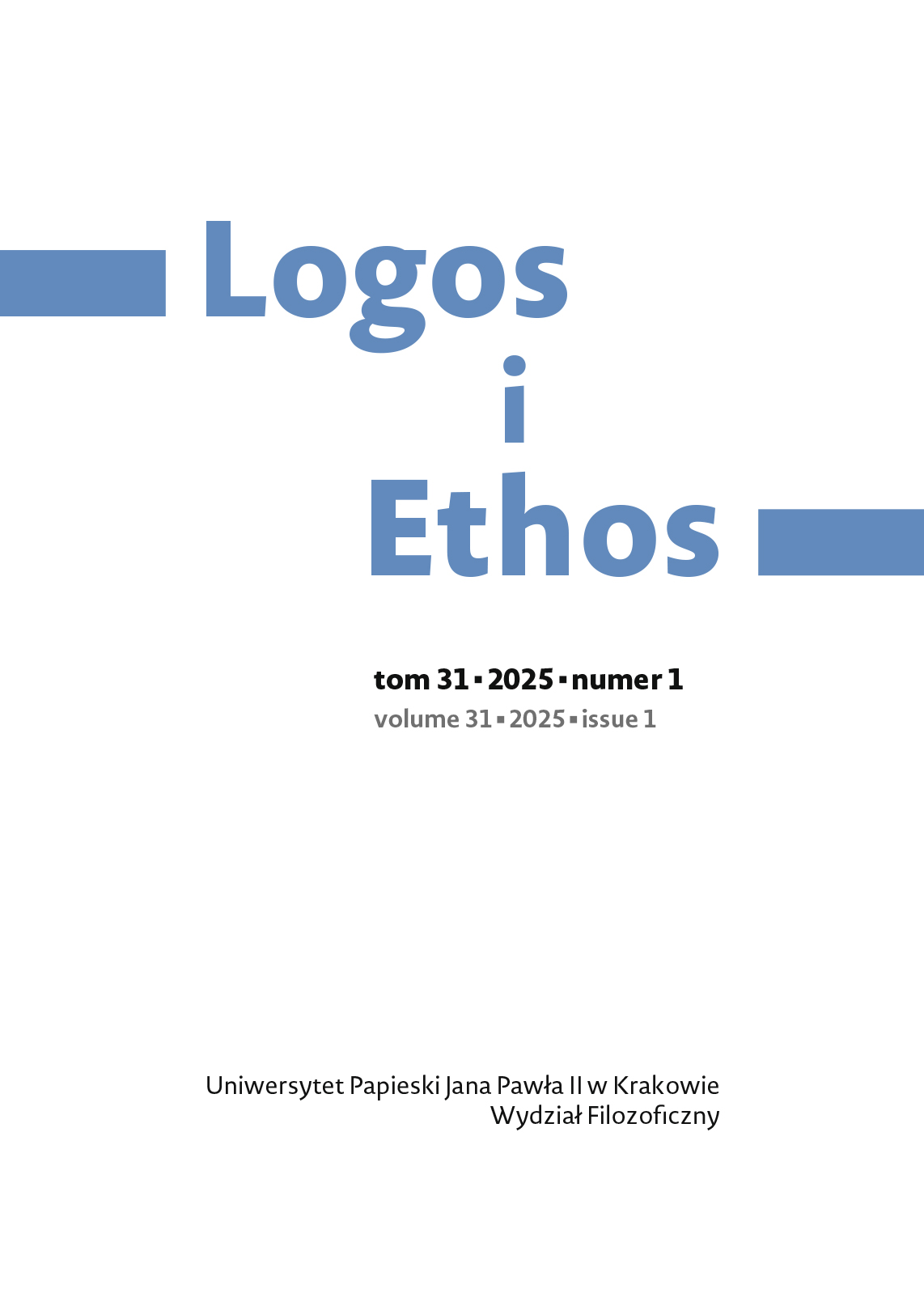Inteligentny świat: czwarta rewolucja przemysłowa i eksterioryzacja rozumu
DOI:
https://doi.org/10.15633/lie.31103Słowa kluczowe:
czwarta rewolucja przemysłowa, kryzys, rozum, rozwój, sztuczna inteligencjaAbstrakt
Gwałtowny rozwój technologii cyfrowych, w tym sztucznej inteligencji (AI) kształtuje zupełnie nowy typ kultury gospodarczej. W jej strukturze dochodzi do przeformułowania władz poznawczych człowieka. Celem artykułu jest identyfikacja procesów prowadzących do zjawiska „eksterioryzacji rozumu”. Zjawisko to rozumiane jest w trojaki sposób. Po pierwsze jako redukcja władz poznawczych do sfery zmysłu i intelektu; po drugie – jako wyprowadzenie instrumentarium poznania poza człowieka; po trzecie – jako zmiana środowiska pracy ludzkiego umysłu. Zagadnienie eksterioryzacji rozumu omówione zostanie w kontekście struktury kulturowej czwartej rewolucji przemysłowej, przez co też rozpatrywane będzie w trzech powiązanych ze sobą wymiarach kultury gospodarczej: materialnym, społecznym i symbolicznym. W rezultacie kultura czwartej rewolucji da się poznać jako świat, którego wynalazki, pełniąc służbę na rzecz ludzkiego poznania, ostatecznie stwarzają dlań zagrożenie. Redefinicja roli i znaczenia władz poznawczych wynika w tym układzie z unieważnienia granic między tym, co materialne i cyfrowe; instytucjonalne – kodyfikowane oraz wirtualne – realne.
Bibliografia
Baczko B., Wolter: zło i ład naturalny, „Archiwum Historii Filozofii i Myśli Społecznej” 20 (1974), s. 17–58.
Bakuła S., Problem poznania w krytyce czystego rozumu Kanta jako teoretyczna propozycja dla współczesnych dyskusji nad poznaniem, „Filozofia i Nauka. Studia filozoficzne i interdyscyplinarne” 1 (2013), s. 257–271.
Baudrillard J., Precesja symulakrów, tłum. T. Komendant, w: Postmodernizm. Antologia przekładów, red. R. Nycz, Kraków 1996, s. 175–189.
Benedict R., Wzory kultury, przekł. J. Prokopiuk, Kraków 2019.
Branicki W., Tożsamość a wirtualność, Kraków 2009.
De Spiegeleire S., Maas M., Sweijs T., Artificial intelligence and the future of defense: strategic implications for small- and medium-sized force providers, The Hague 2017, http://www.jstor.org/stable/resrep12564 (15.12.2024).
Dombrowski U., Wagner T., Mental strain as field of action in the 4th industrial revolution, „Procedia CIRP” 17 (2014): Variety Management in Manufacturing. Proceedings of the 47th CIRP Conference on Manufacturing Systems, s. 100–105, https://doi.org/10.1016/j.procir.2014.01.077.
Dukaj J., Sztuczna inteligencja — koniec naszej podmiotowości?, „Pomorski Thinkletter” (2021) nr 4: Człowiek vs. algorytmy i sztuczna inteligencja — kto kogo zaprogramuje?, s. 1–5.
Eisenstadt S., Utopia i nowoczesność. Porównawcza analiza cywilizacji, przeł. A. Ostolski, Warszawa 2009.
Gabriel G., Teoria poznania od Kartezjusza do Wittgensteina, przekł. T. Kubalica, Kraków 2007.
Hoffe C., Mała historia filozofii, Warszawa 2004.
Hryniewicz J., Polityczny i kulturowy kontekst rozwoju gospodarczego, Warszawa 2004.
Kagermann H., Wahlster W., Helbig J., Securing the future of German manufacturing Industry: Recommendations for implementing the strategic initiative INDUSTRIE 4.0. Final report of the Industrie 4.0 Working Group. Acatech — National Academy of Science and Engineering, April 2013, https://www.din.de/resource/blob/76902/e8cac883f42bf28536e7e8165993f1fd/recommendations-for-implementing-industry-4-0-data.pdf
Kant I., Odpowiedź na pytanie: czym jest Oświecenie?, w: I. Kant, Rozprawy z filozofii historii, Kęty 2005, s. 44‒49.
Kłoskowska A., Socjologia kultury, Warszawa 2007.
Kochanowicz J., Wstęp, w: Kultura i gospodarka, red. J. Kochanowicz, M. Marody, Warszawa 2010, s. 7‒20.
Krzysztofek K., Szczepański M., Zrozumieć rozwój. Od społeczeństw tradycyjnych do informacyjnych, Katowice 2002.
Latour B., On actor-network theory: a few clarifications, „Soziale Welt” 47 (1996) H. 4, s. 369–381.
Lennox J. C., 2084. Sztuczna inteligencja i przyszłość ludzkości, Warszawa 2023.
Marciszewski W., Sztuczna inteligencja, Kraków 1998.
Marks K., Przyczynek do krytyki ekonomii politycznej, przeł. E. Lipiński, Warszawa 1955.
Marody M., Giza-Poleszczuk A., Przemiany więzi społecznych. Zarys teorii zamiany społecznej, Warszawa 2004.
Moczydłowska J. M., Przemysł 4.0 (?). Ludzie i technologie, Warszawa 2023.
Morawiec E., Wybrane filozoficzne koncepcje rozumu ludzkiego i racjonalność, Liberi Libri, 2014.
Mumford L., Mit maszyny. Pentagon władzy, t. 1, przeł. M. Szczubiałka, Warszawa 2012.
North D. C., Institutions, institutional change, and economic performance, Cambridge 1990.
Schwab K., Czwarta rewolucja przemysłowa, przekł. A. D. Kamińska, Warszawa 2018.
Siemek M. J., Dwa światy Immanuela Kanta, w: M. J. Siemek, W kręgu filozofów, Warszawa 1984.
Singaram S., Mayer C.-H. ,The influence of the Fourth Industrial Revolution on organizational culture: an empirical investigation, „Frontiers in Psychology” 13 (2022), https://doi.org/10.3389/fpsyg.2022.919157.
Tatarkiewicz W., Historia filozofii, t. 1, Warszawa 1959, s. 120.
Toynbee A. J., Studium historii, przeł. J. Marzęcki, Warszawa 2000.
Pobrania
Opublikowane
Numer
Dział
Licencja
Prawa autorskie (c) 2025 Magdalena Zdun

Utwór dostępny jest na licencji Creative Commons Uznanie autorstwa 4.0 Międzynarodowe.
Autorzy publikujący w czasopiśmie udzielają jego wydawcy zgody o następującej treści:
- Autor zachowuje autorskie prawa majątkowe do utworu, a jednocześnie udziela wydawcy czasopisma zgody na jego pierwszą publikację w wersji drukowanej i wersji online na licencji Creative Commons Uznanie autorstwa 4.0 Międzynarodowe oraz zgody na wykonywanie opracowań, w tym przekładów.
- Autor ma możliwość udzielania zgody niewyłącznej na opublikowanie utworu w wersji, która ukazała się w czasopiśmie (np. zamieszczenia go w repozytorium instytucjonalnym lub opublikowania w książce), wraz z informacją o jego pierwszej publikacji w czasopiśmie.
- Autor może umieścić swój utwór online (np. w repozytorium instytucjonalnym lub na swojej stronie internetowej) jeszcze przed zgłoszeniem utworu do czasopisma.

